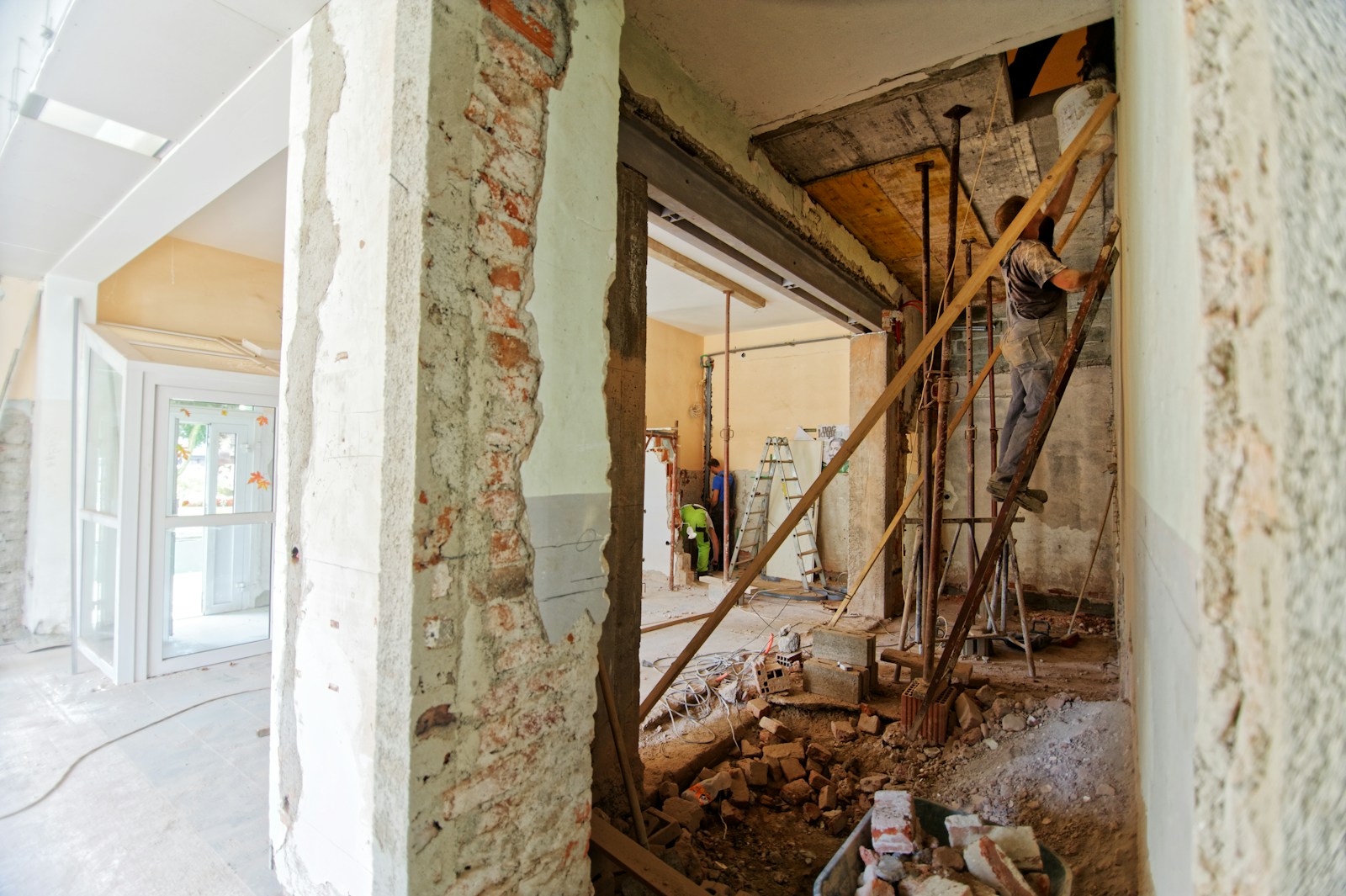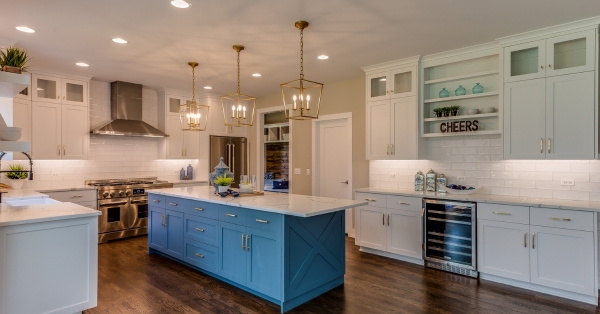Home renovations can be exciting yet daunting. Proper planning can significantly reduce stress, making the process smoother and more enjoyable. This guide will walk you through essential steps to ensure your renovation is stress-free from start to finish.
Initial Planning and Budgeting
The first step in a successful home renovation is setting realistic goals. What do you hope to achieve with this renovation? Are you looking to increase your home’s value, improve functionality, or simply refresh its appearance? Having clear objectives will guide your decisions throughout the project. Additionally, involve your family in the planning process to ensure everyone’s needs and preferences are considered.
Next, create a detailed budget. This should include all potential expenses, from materials and labor to permits and unexpected costs. Including a contingency fund (typically 10-20% of the total budget) is crucial for covering unforeseen expenses. Researching the costs involved will give you a clearer picture of what to expect and help you avoid financial surprises. Use online tools and resources to estimate costs and compare prices.
Break down your budget into categories for better management. Allocate specific amounts for each aspect of the renovation, such as plumbing, electrical work, and interior finishes. Regularly review and adjust your budget as needed. Staying financially organized will help prevent overspending. Remember, it’s better to overestimate costs than to be caught off guard later.
Choosing the Right Professionals
Hiring experienced and reliable professionals is key to a successful renovation. Whether you’re looking for an architect, designer, or contractor, do your homework. Read reviews, ask for references, and check credentials. The professionals you choose will significantly impact the quality and timeliness of your renovation. Don’t rush this decision; take the time to find the best fit for your project.
For specialized services, it’s essential to hire experts. For instance, if your renovation involves roofing, consider hiring a top-rated metal roofing company. Their expertise ensures that your new roof will be both durable and aesthetically pleasing. Quality workmanship from specialists can save you time, money, and headaches in the long run. Additionally, ensure that all professionals are licensed and insured to protect yourself from liability.
Interview multiple candidates before making a final decision. Ask detailed questions about their experience, process, and availability. Request detailed estimates and compare them. Transparency and clear communication from the outset can prevent misunderstandings later. Trust your instincts; if something feels off, it’s worth exploring other options.
Creating a Detailed Renovation Plan
A clear and detailed renovation plan is your roadmap to success. Start by developing a timeline that outlines each phase of the project. Setting milestones and deadlines helps keep the project on track. Make sure to obtain all necessary permits and approvals before starting work. This step is often overlooked but is crucial for avoiding legal issues down the line.
Break down the renovation into smaller, manageable tasks. This approach makes the project less overwhelming and helps you track progress more effectively. Include specific dates for each task and monitor them regularly. Flexibility is essential, but having a structured plan will keep you focused. Communicate this plan with all involved parties to ensure alignment.
Consider using project management software to keep everything organized. Tools like Trello, Asana, or even simple spreadsheets can be incredibly helpful. Keep copies of all contracts, receipts, and communications in one place. This documentation will be invaluable if any disputes arise. Regularly review and adjust your plan as needed to accommodate any changes or delays.
Effective Communication and Coordination
Communication is vital in any renovation project. Maintain open lines of communication with your contractors and designers. Regular check-ins and updates ensure everyone is on the same page and can quickly address any issues that arise. Flexibility is also important. Unexpected challenges are inevitable, so being adaptable can help you manage changes without undue stress.
Establish a primary point of contact for all communication. This person can streamline information flow and reduce the likelihood of miscommunications. Use both formal meetings and informal check-ins to stay updated. Document all agreements and changes in writing to avoid misunderstandings. Having clear records can be crucial if any disputes occur.
Encourage feedback from your team. They may have valuable insights or suggestions that could improve the project. Address concerns promptly to maintain trust and cooperation. Effective communication fosters a positive working environment. Remember, a collaborative approach often leads to the best results.
Preparing Your Home and Family
Before the renovation begins, prepare your home and family for the disruption. Decluttering and organizing your space can make the renovation process smoother. Set up temporary living spaces to minimize inconvenience. It’s also essential to communicate your plans and expectations with family members. Keeping everyone informed helps manage stress and maintain harmony at home.
Consider setting up a renovation-free zone where your family can relax. This space can provide a much-needed retreat from the chaos. Make arrangements for alternative accommodations if the renovation is extensive. Discuss the timeline and potential inconveniences with your family beforehand. Preparing mentally for the disruption can help everyone cope better.
Secure valuables and sensitive items in a safe place. Dust and debris are inevitable, so protect your belongings accordingly. Inform your neighbors about the renovation and any potential disruptions. A little courtesy can go a long way in maintaining good relations. Plan for the unexpected by having a backup plan for living arrangements.
Managing Stress Throughout the Renovation
Staying organized and focused can significantly reduce stress. Use tools like calendars, checklists, and project management apps to keep track of progress. Self-care is equally important. Take breaks, get plenty of rest, and don’t hesitate to ask for help when needed. Celebrating small victories along the way can keep morale high and make the process more enjoyable.
Practice stress-relief techniques such as deep breathing, meditation, or exercise. These can help you stay calm and focused. Keep an open line of communication with your family and contractors to address issues promptly. Stay flexible and adapt to changes as they come. Remember, it’s okay to feel overwhelmed at times.
Seek support from friends or professionals if needed. Sometimes, talking to someone who understands can make a big difference. Maintain a positive outlook and focus on the end goal. Visualizing the finished project can be a powerful motivator. Keep a journal to document your progress and reflect on your journey.
Final Inspections and Wrap-Up
Once the renovation is complete, conduct a thorough final inspection. This step ensures that all work meets your expectations and that any remaining issues are addressed. Don’t rush this process; take your time to review everything carefully. Finally, enjoy your newly renovated home. Take pride in what you’ve accomplished and maintain your space to keep it looking its best.
Create a checklist of items to inspect. Pay attention to details and make notes of any discrepancies. Discuss these with your contractor and set a timeline for corrections. Ensure that all warranties and guarantees are documented. This paperwork is essential for future reference.
Celebrate the completion of your project with your family and friends. Host a small gathering to showcase your newly renovated space. Reflect on the journey and lessons learned. Your experience can provide valuable insights for future projects. Finally, take time to relax and enjoy the fruits of your labor.
Conclusion
Planning a stress-free home renovation is possible with the right approach. Setting realistic goals, budgeting effectively, hiring the right professionals, and maintaining clear communication are all crucial steps. With proper planning and a positive mindset, you can transform your home with confidence and ease. Remember, the key is to stay organized, flexible and focused on the end goal.







